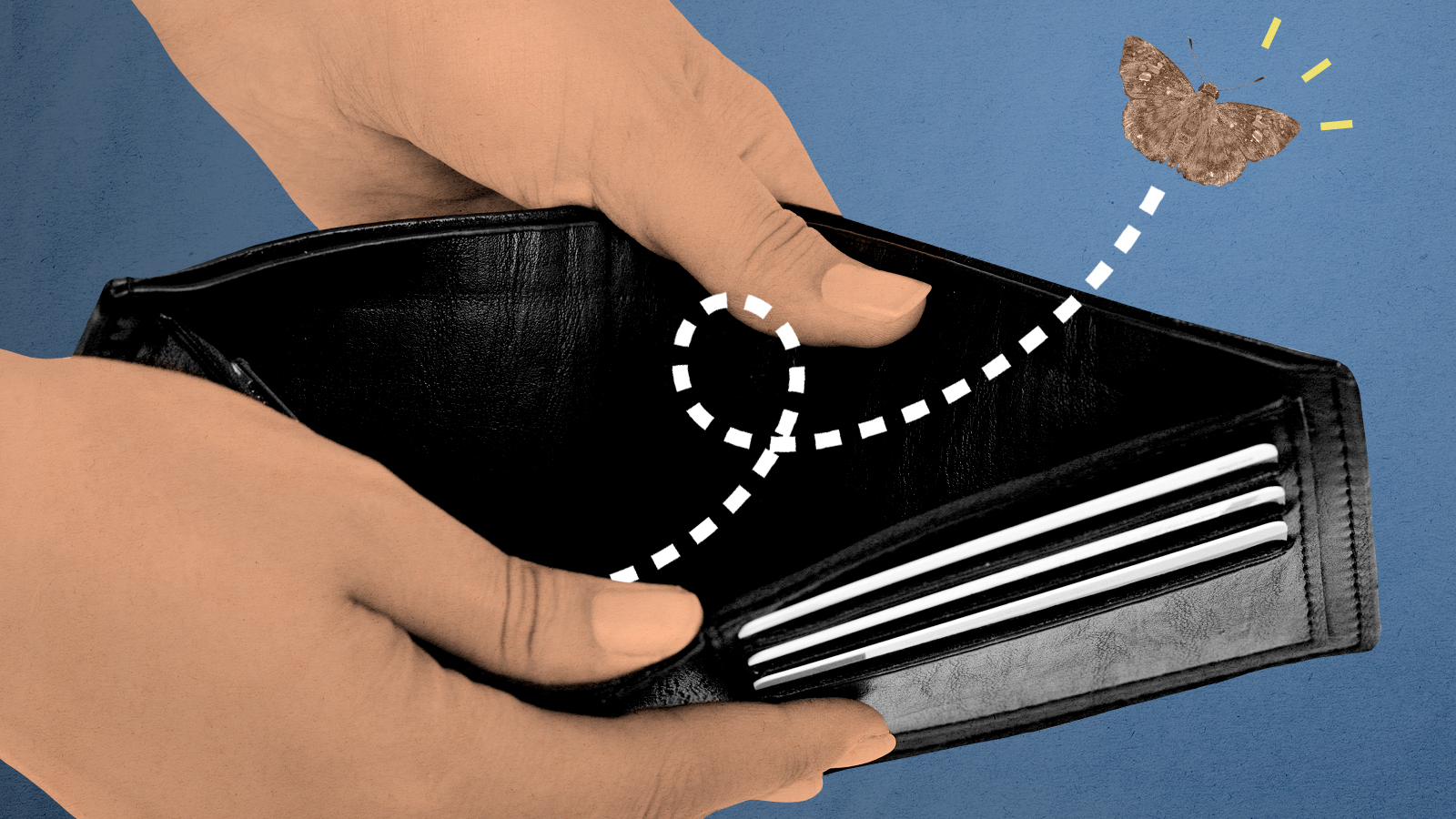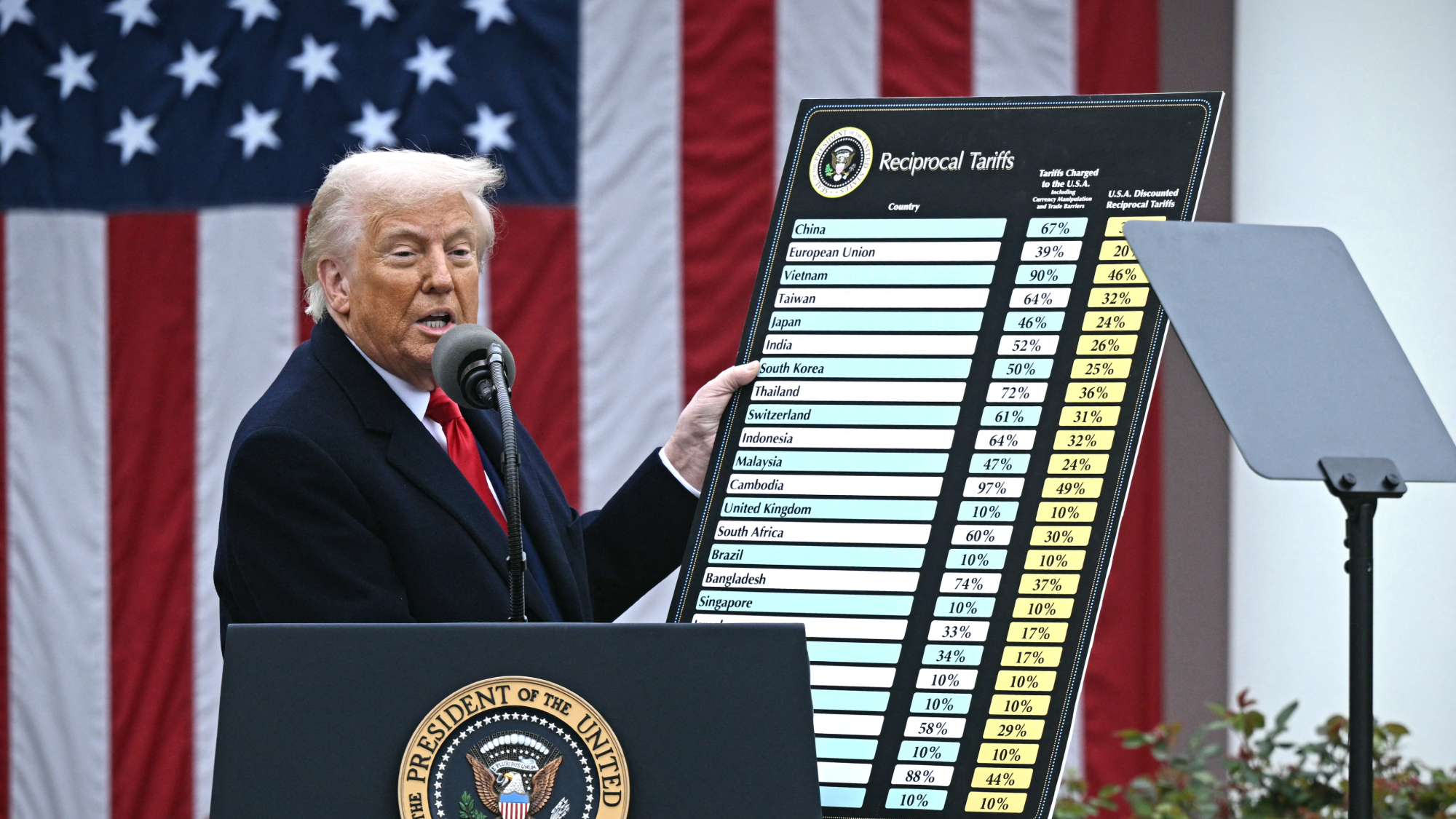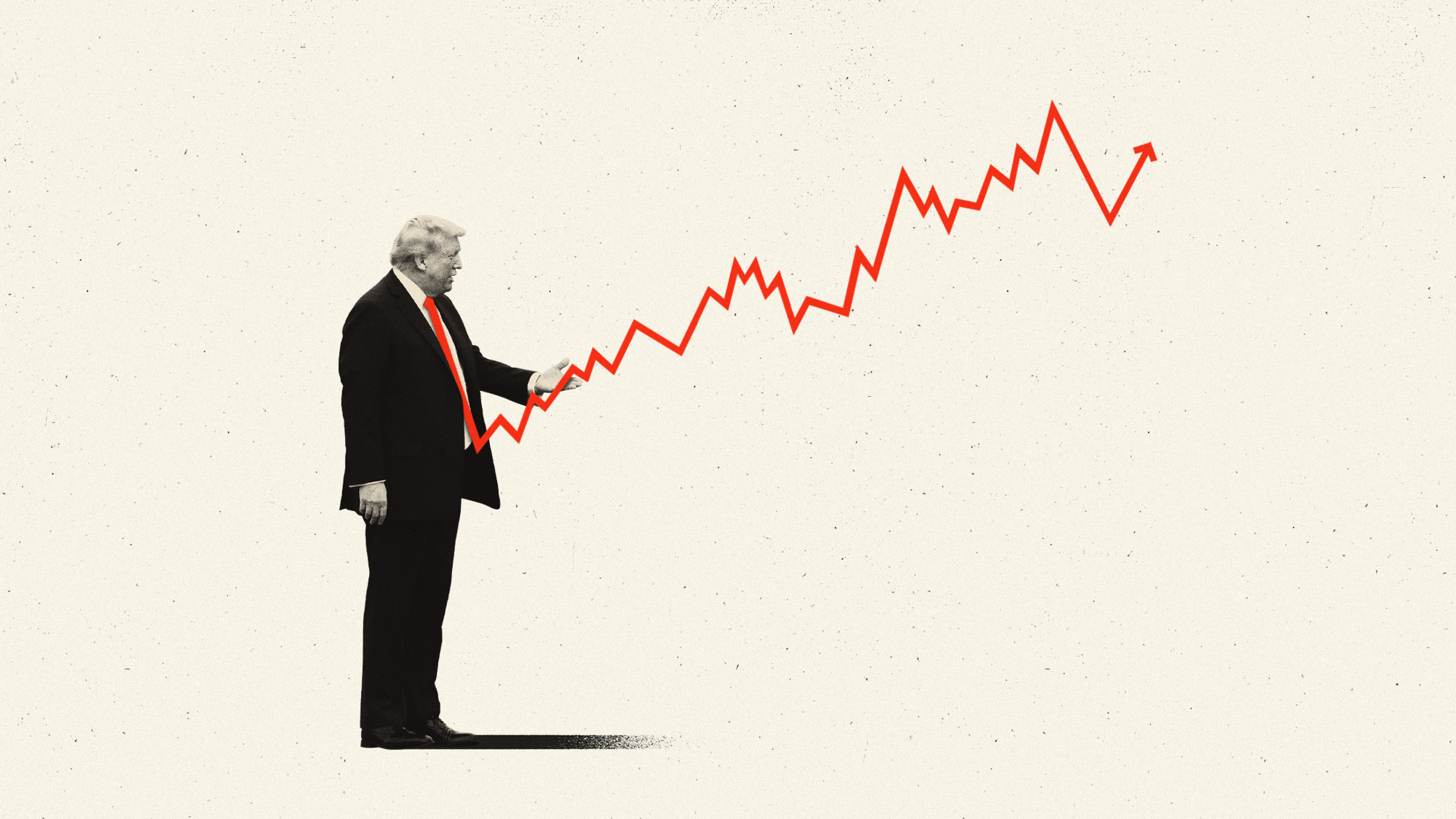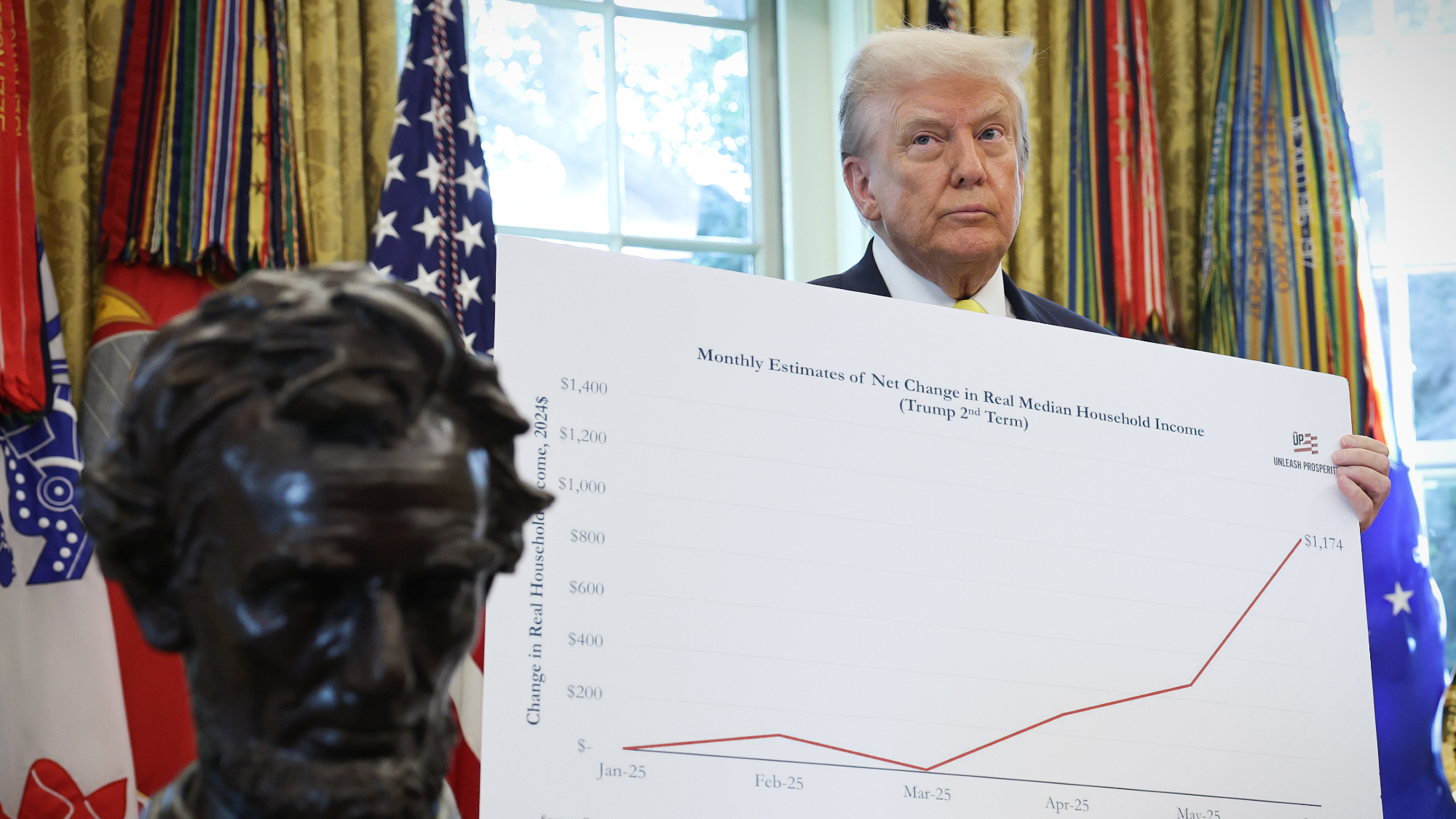Where did all this inflation come from, and how do we make it go away?
The painful rise in prices, including mainstays like food and oil, could end on its own — or not


A free daily email with the biggest news stories of the day – and the best features from TheWeek.com
You are now subscribed
Your newsletter sign-up was successful
The painful rise in prices for everything, including mainstays like food and oil, is both an economic and political problem. So, how serious is it and what can be done about inflation?
How bad is inflation?
Inflation hit a new 40-year high last month, with consumer prices up 8.5 percent since March 2021. Prices previously jumped 7 percent in December, 7.5 percent in January, and 7.9 percent in February. In March alone, prices rose 1.2 percent.
The Week
Escape your echo chamber. Get the facts behind the news, plus analysis from multiple perspectives.

Sign up for The Week's Free Newsletters
From our morning news briefing to a weekly Good News Newsletter, get the best of The Week delivered directly to your inbox.
From our morning news briefing to a weekly Good News Newsletter, get the best of The Week delivered directly to your inbox.
What does this mean for your budget? Michelle Fox of CNBC reported Wednesday that according to Moody's Analytics, the average American household is spending an additional $327 per month due to inflation. Over a year, that comes out to nearly $4,000.
Wages are up, but not enough to cancel out inflation. Real wages fell by 2.7 since March 2021 and by 0.8 percent in March 2022 alone. "If you want to know why Americans are sour about the economy even as jobs are plentiful, this is it. Their real wages are falling while the prices of everyday goods and services are rising fast," The Wall Street Journal's editorial board writes.
And it's not just consumers who are feeling the squeeze. Tobias Burns wrote at The Hill that wholesale prices are up 11.2 percent since March 2021.
Is it Putin's fault?
A free daily email with the biggest news stories of the day – and the best features from TheWeek.com
Mostly, no. The Biden administration has been tirelessly pushing the narrative of "Putin's price hike" to explain away inflation. White House Press Secretary Jen Psaki used the phrase several times during a briefing on Monday, and President Biden echoed the phrase during an appearance in Iowa on Tuesday.
"We saw it in today's inflation data: 70 percent of the increase in prices in March came from Putin's price hike in gasoline," Biden said. Writing for The New York Times, economist Paul Krugman gave a more modest figure, claiming that increased gas prices accounted for 50 percent of March's inflation.
It's true that gas prices have increased far more drastically than the cost of other goods — 18.3 percent since February and 48 percent since March 2021. But, as Brad Polumbo of the Foundation for Economic Education pointed out, "gas prices were rising for almost nine months before the invasion began, and prices overall have been surging since May of 2021."
Also, gas prices aren't the only thing driving inflation. If you exclude the costs of food and energy from Tuesday's report, 12-month inflation for March was still 6.5 percent.
Despite these objections, the administration's messaging strategy appears to be having some effect. A recent poll showed that 71 percent of Americans blame Russian President Vladimir Putin for high gas prices, while only 52 percent blame Biden.
What is Biden doing about it?
In addition to blaming Putin, Biden is also blaming corporate greed. "I'm also working to address food prices ... four big companies control more than half the market for beef, pork, and poultry, giving ranchers very few choices about who to sell to get their product. These big conglomerates drive down prices they pay farmers, and even as they drive up prices at the grocery store," Biden said in Iowa.
Reuters reported Wednesday that the CEOs of these four companies — Cargill, Tyson, JBS, and National Beef Packing — have agreed to testify at congressional hearings about the price of meat. Last week, Democratic lawmakers raked Big Oil executives over the coals, asking why the price at the pump was falling more slowly than the price of crude oil.
"This 'corporate greed' narrative is nonsense," wrote Washington Post columnist Catherine Rampell. "Corporations are always greedy. It's their job to make a buck. They didn't suddenly remember to become greedy in the past year."
On March 31, Biden announced the release of 1 million barrels of oil a day from the Strategic Petroleum Reserve for up to 180 days in what he referred to as a "wartime bridge to increase oil supply."
Has that helped? It depends who you ask. Krugman wrote that the oil from the reserve "makes up for much of the shortfall" created by sanctions against Russia and that gas prices, which peaked in March, should continue falling. The Wall Street Journal's editorial board, on the other hand, called Biden's strategy "futile" and argued the "best anti-inflation policy would be a spending freeze on everything but defense" plus cuts to tariffs and a moratorium on new regulations.
Finally, the Federal Reserve has begun inching up interest rates for the first time since 2018, with the goal of raising the federal-funds rate to 2.8 percent by the end of 2023. The Journal editorial board says this is too little, too slow: "History suggests that once inflation is this high, interest rates will have to exceed the inflation rate to break it."
How will it end?
Krugman argues "it's likely that over the next few months inflation will come down significantly" as supply chain wrinkles smooth out and gas prices fall. He also claims that wages — which have failed to keep pace with inflation — are "rising at an unsustainable pace" and that an uptick in unemployment would help further reduce inflation.
For other observers, however, the only way to break the inflation fever is to sweat it out. Conservative podcaster Ben Shapiro said Monday that "America's monetary policy has been far too loose for far too long" and that politicians had caused inflation by "borrowing and spending" too much "fake money."
The Journal's editorial board concurred: "President Trump signed onto an unnecessary $900 billion Covid relief bill in December 2020, and Democrats threw kerosene on the kindling with another $1.9 trillion in March 2021. The Federal Reserve continues to support negative real interest rates nearly two years after the pandemic recession ended. This inflation was made in Washington, D.C."
Writing for The Week last month, Damon Linker suggested what it might take to beat inflation. In the 1980s, Federal Reserve Chair Paul Volcker brough inflation down from the dizzying height of 14.6 percent by raising interest rates "sharply," as high as 20 percent. This came at a cost, causing "the most painful recession since the Great Depression, with unemployment hitting a peak of 10.8 percent."
If Krugman is wrong and inflation is not going away on its own, Biden faces an impossible choice: Let inflation remain high and get hammered by Republicans for it, or pressure the Fed to ratchet up interest rates and become the president who caused a major recession.
Grayson Quay was the weekend editor at TheWeek.com. His writing has also been published in National Review, the Pittsburgh Post-Gazette, Modern Age, The American Conservative, The Spectator World, and other outlets. Grayson earned his M.A. from Georgetown University in 2019.
-
 The billionaires’ wealth tax: a catastrophe for California?
The billionaires’ wealth tax: a catastrophe for California?Talking Point Peter Thiel and Larry Page preparing to change state residency
-
 Bari Weiss’ ‘60 Minutes’ scandal is about more than one report
Bari Weiss’ ‘60 Minutes’ scandal is about more than one reportIN THE SPOTLIGHT By blocking an approved segment on a controversial prison holding US deportees in El Salvador, the editor-in-chief of CBS News has become the main story
-
 ‘They’re nervous about playing the game’
‘They’re nervous about playing the game’Instant Opinion Opinion, comment and editorials of the day
-
 Tariffs: Will Trump’s reversal lower prices?
Tariffs: Will Trump’s reversal lower prices?Feature Retailers may not pass on the savings from tariff reductions to consumers
-
 Has Zohran Mamdani shown the Democrats how to win again?
Has Zohran Mamdani shown the Democrats how to win again?Today’s Big Question New York City mayoral election touted as victory for left-wing populists but moderate centrist wins elsewhere present more complex path for Democratic Party
-
 Millions turn out for anti-Trump ‘No Kings’ rallies
Millions turn out for anti-Trump ‘No Kings’ ralliesSpeed Read An estimated 7 million people participated, 2 million more than at the first ‘No Kings’ protest in June
-
 Inflation derailed Biden. Is Trump next?
Inflation derailed Biden. Is Trump next?Today's Big Question 'Financial anxiety' rises among voters
-
 Trump picks conservative BLS critic to lead BLS
Trump picks conservative BLS critic to lead BLSspeed read He has nominated the Heritage Foundation's E.J. Antoni to lead the Bureau of Labor Statistics



